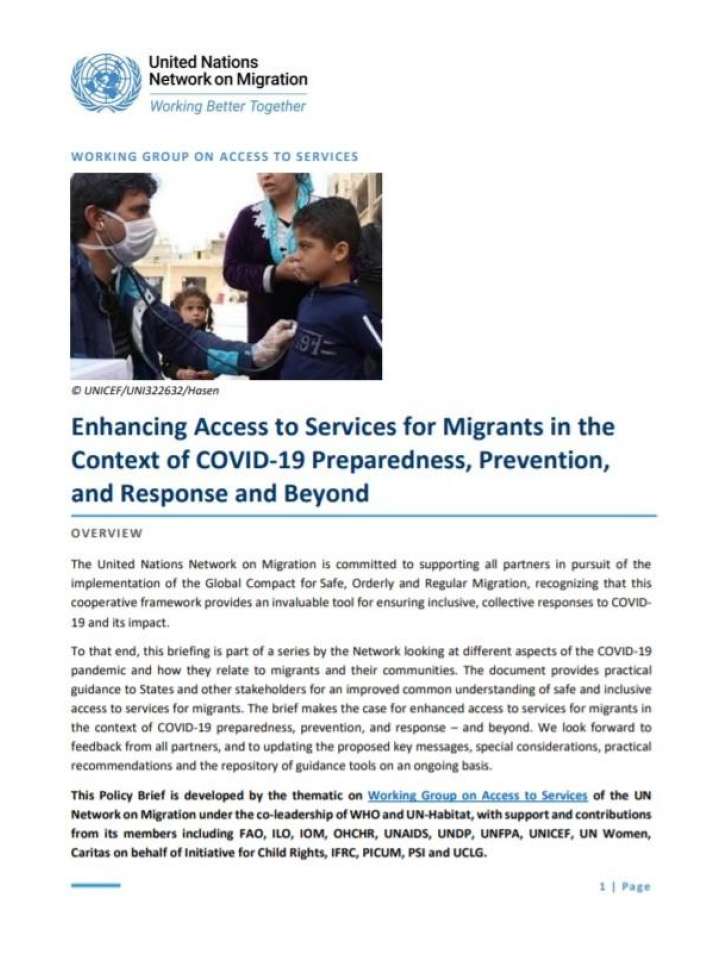Enhancing access to services for migrants in the context of COVID-19 preparedness, prevention, and response and beyond
Effective COVID-19 preparedness, prevention and response require a migrant-inclusive approach regarding access to services at the national and local levels. By including migrants in national plans, including socio-economic response plans, impact analysis, policies and strategies, gaps in health and other inequities such as access to education and information, training and decent work will be diminished, strengthening efforts towards achieving the Sustainable Development Goals (SDGs). In line with the universal health coverage (UHC) principles, this will require a whole-of-society and whole-of-government approach, working across sectors and stakeholders including immigration, finance, education, labour and other ministries, across government levels.
This will also need to be within and across national and local authorities, including civil society organizations and community leaders, private sector actors, employers and workers’ organizations, as well as national human rights institutions. The engagement of migrants themselves as key stakeholders in the community will be a vital element for the sustainability of national plans. Plans and policies should be evidence-based, age- and gender-responsive, facilitate affordable and non-discriminatory access to services, and include targeted measures ensuring safeguards of migrants’ entitlements and fundamental rights at work.
The key recommendations from the brief focus on the following actions/measures among others:
- Inclusive access to essential lifesaving health services and continuity of care;
- Prevention and support to victims of sexual and gender-based violence (GBV);
- Access to accurate and timely information, conducting risk communications and strengthening community participation and engagement;
- Access to child protection services for migrant children.
Explore further
